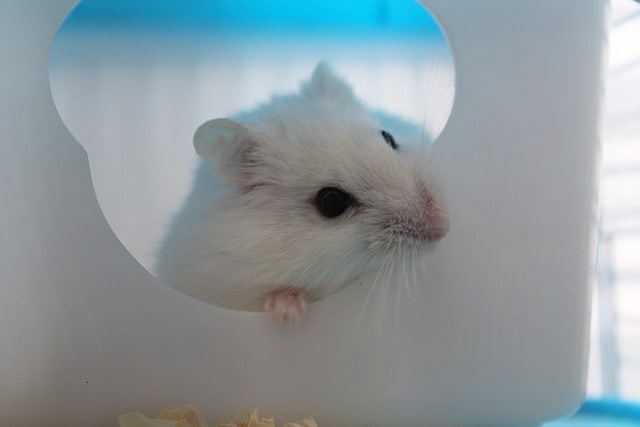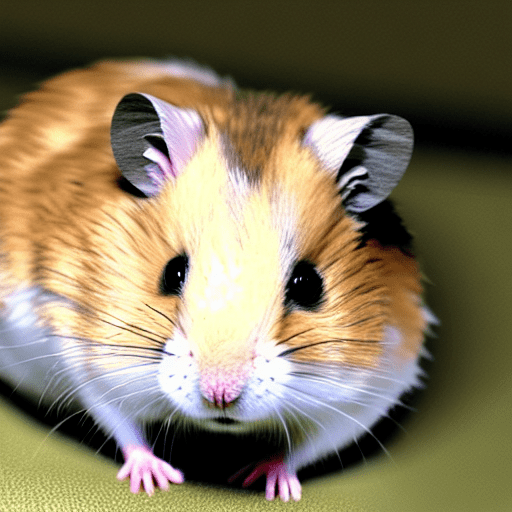No, guinea pigs cannot eat hamster food as their nutritional needs differ. Hamster food is not suitable for guinea pigs as it lacks essential nutrients like vitamin C, which is vital for their health.
Guinea pigs require a diet high in fresh vegetables, hay, and guinea pig-specific food pellets to meet their nutritional requirements. Feeding them hamster food can lead to vitamin deficiency and other health issues. It’s important to provide guinea pigs with a balanced and proper diet that is specifically formulated for their needs to ensure their overall well-being.
Key Differences Between Guinea Pig And Hamster Diets
When it comes to the diets of guinea pigs and hamsters, there are some key differences that you should be aware of. Guinea pigs have specific nutritional requirements that need to be met in order to keep them healthy. They need a diet that is high in fiber, such as hay and fresh vegetables, to maintain good digestive health. On the other hand, hamsters have different nutritional needs. They require a diet that is higher in protein and fat, which is typically found in hamster-specific food mixes.
While it may be tempting to feed guinea pigs hamster food, it is not suitable for them. Hamster food lacks the necessary fiber content that guinea pigs need, and it may also contain ingredients that could be harmful to guinea pigs. It is important to provide guinea pigs with a balanced diet that meets their specific nutritional needs to ensure their overall well-being.
Risks Associated With Feeding Hamster Food To Guinea Pigs
Feeding hamster food to guinea pigs can pose several risks to their health. One of the main concerns is digestive issues. Guinea pigs have different dietary requirements than hamsters, and consuming hamster food can lead to digestive problems such as diarrhea, bloating, and constipation.
Another risk is the possibility of vitamin and mineral deficiencies. Hamster food is specifically formulated to meet the nutritional needs of hamsters, which may differ from those of guinea pigs. Guinea pigs require higher amounts of vitamin C in their diet, and feeding them hamster food can result in a deficiency of this essential nutrient.
Furthermore, hamster food is often higher in fat and calories compared to guinea pig food. Feeding hamster food to guinea pigs can therefore increase the risk of obesity, which can lead to various health issues such as heart disease and diabetes.
Lastly, hamster food may not provide the necessary chewing exercise for guinea pigs’ teeth. Guinea pigs have continuously growing teeth, and the grinding action of chewing their food helps wear down their teeth. Eating hamster food may not provide the same level of dental maintenance and can lead to dental problems such as overgrown teeth and dental malocclusion.
Safe Alternatives To Hamster Food For Guinea Pigs
Hamster food is not recommended for guinea pigs as their nutritional needs are different. However, there are safe alternatives that can be provided to ensure the well-being of your guinea pig.
| Timothy Hay as a staple: |
| Guinea pigs require a constant supply of timothy hay. It is an essential part of their diet and helps maintain healthy digestion. |
| Vegetables: |
Fruits: |
| Leafy greens such as kale, spinach, and romaine lettuce are excellent choices. Other safe options include bell peppers, carrots, and cucumbers. |
Small amounts of fruits like strawberries, apples, and pears can be given as occasional treats. |
Ensure that you provide your guinea pig with high-quality
guinea pig pellets that are specifically formulated to meet their nutritional requirements.
Always make sure your guinea pig has access to
fresh, clean water at all times. Monitor the water level and change it regularly to keep it fresh.
Understanding The Specific Dietary Needs Of Guinea Pigs
Understanding the Specific Dietary Needs of Guinea Pigs
Guinea pigs have specific dietary needs that must be met to ensure their optimal health and well-being. High fiber content is essential in their diet as it supports their digestive system and helps prevent common health issues, such as gastrointestinal problems. Fresh hay should constitute the majority of a guinea pig’s diet, providing the necessary fiber they require.
Another crucial aspect of a guinea pig’s diet is adequate vitamin C intake. Unlike other animals, guinea pigs cannot produce vitamin C on their own, making it a vital nutrient that needs to be included in their diet. Fresh fruits and vegetables containing vitamin C, such as oranges or bell peppers, are excellent additions to their meals.
Guinea pigs are prone to obesity and related health issues, so it is important to limit their fat and sugar intake. Commercial hamster food may not be suitable for guinea pigs, as it may contain higher fat or sugar content that could adversely affect their health.
It is best to follow a recommended feeding schedule when providing food for guinea pigs. Offering small portions of fresh vegetables and fruits twice a day, along with access to fresh hay at all times, ensures a balanced diet that suits their specific nutritional needs.
Introducing New Foods To Guinea Pigs’ Diet
Guinea pigs can eat hamster food, but it should not be their primary diet. Hamster food lacks essential nutrients and can cause health problems. It’s best to introduce new foods gradually and consult a veterinarian for a well-balanced diet.
When incorporating new foods into your guinea pig’s diet, it is crucial to ensure a gradual transition for optimal digestion. Abrupt changes can lead to digestive issues that may cause discomfort for your furry friend. Start by introducing small quantities of the new food and gradually increase the amount over time. Monitor your guinea pig for any adverse reactions such as diarrhea, bloating, or changes in appetite. Identifying suitable foods is essential to maintain a balanced diet for your guinea pig. Fresh vegetables like celery, bell peppers, and leafy greens are generally safe and nutritious options. Additionally, certain fruits like apples and berries can be given as occasional treats. Remember to research extensively before introducing any new food item to your guinea pig’s diet.
Signs Of Nutritional Imbalance In Guinea Pigs
Giving your guinea pig
hamster food can lead to several signs of nutritional imbalance. One of the first signs to look out for is
weight loss or gain. If you notice your guinea pig is rapidly losing or gaining weight, it could be a result of an unbalanced diet.
Another indicator of nutritional imbalance is a
dull coat or
skin issues. A lack of essential nutrients can cause the fur to become dry and lackluster, while skin problems like itchiness or flakiness may arise.
Furthermore,
digestive problems can manifest when guinea pigs consume inappropriate food. Symptoms such as diarrhea, constipation, or bloating may indicate an imbalance in their diet.
Lastly,
malocclusion or
dental abnormalities can be a result of inadequate nutrition. Guinea pigs need proper teeth wear down to avoid dental complications, but an improper diet can lead to teeth overgrowth or misalignment.
Optimal Diet For Guinea Pigs For Overall Health
A balanced and varied diet is essential for ensuring the overall health and well-being of guinea pigs. It is important to provide them with a diet that meets their specific nutritional needs.
Regular vet check-ups can provide valuable advice on the optimal diet for guinea pigs. They can offer guidance on the appropriate amount and types of food to feed, as well as any supplements that may be necessary.
Maintaining a healthy weight is crucial for guinea pigs, as obesity can lead to various health issues. By providing the right amount of food and monitoring their weight, owners can help prevent them from becoming overweight or underweight.
Creating opportunities for mental stimulation through food exploration is another important aspect of a guinea pig’s diet. Providing a variety of fruits, vegetables, and other food items that they can forage and discover can help keep them mentally engaged and entertained.
In summary, ensuring guinea pigs have a balanced and varied diet, seeking nutritional advice from vets, monitoring weight, and encouraging mental stimulation through food exploration are all vital for their overall health and well-being.
Frequently Asked Questions On Can guinea Pigs Eat Hamster Food
Can Guinea Pigs Eat Hamster Food?
Guinea pigs should not eat hamster food as their nutritional needs are different. Hamster food does not contain the necessary nutrients needed by guinea pigs, such as vitamin C. It is best to feed guinea pigs a diet specifically formulated for them to ensure their health and well-being.
What Happens If A Guinea Pig Eats Hamster Food?
If a guinea pig eats hamster food, it may not get the required nutrients it needs for proper growth and health. Hamster food lacks vitamin C, which is vital for guinea pigs as they cannot produce it on their own.
It can lead to various health issues, including scurvy and a weakened immune system.
What Is The Difference Between Guinea Pig And Hamster Food?
The main difference between guinea pig and hamster food is the nutrient composition. Guinea pig food is specially formulated to meet their specific dietary requirements. It contains higher levels of vitamin C, fiber, and lower levels of protein and fat.
Hamster food, on the other hand, is designed for the nutritional needs of hamsters, which differ from those of guinea pigs.
Can Guinea Pigs and Hamsters Be Kept Together as Pets?
Many pet owners wonder about the possibility of a guinea pig vs hamster vs gerbil battle. However, it is important to note that keeping guinea pigs and hamsters together is not recommended. These animals have different care requirements, social structures, and may become aggressive towards each other. It’s best to provide separate homes for them to ensure their well-being.
Conclusion
Overall, while it may be tempting to feed guinea pigs hamster food, it is not recommended. Guinea pigs have different dietary requirements and hamster food may not provide them with the necessary nutrients. It is crucial to prioritize their health and well-being by offering them a balanced diet specifically formulated for guinea pigs.
Providing them with a variety of fresh vegetables, hay, and guinea pig pellets will ensure their optimal health and happiness. Always consult with a veterinarian for any specific dietary concerns for your guinea pig’s individual needs.



One Comment